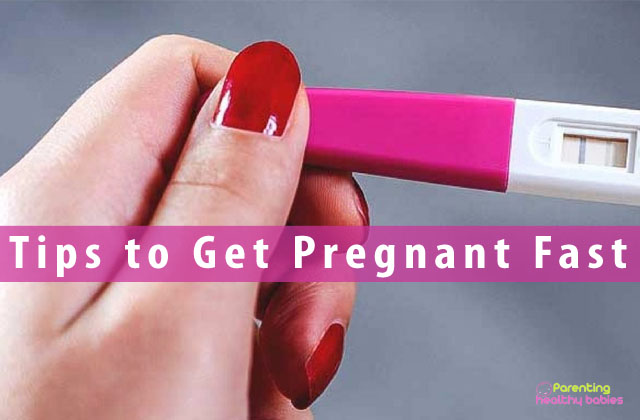Drinking excess fluids, low estrogen levels, vaginitis, anterior prolapse, bladder stones, certain medications and urinary tract/kidney/bladder infections.
Urinating is a natural part of life and your body’s way of getting rid of wastes and extra water it doesn’t need to function. But feeling the urge to pee frequently can get in the way of daily activities and be a significant source of embarrassment. Frequent urination in women is common, as well as frequent burning urination and abdominal pain that accompanies the heightened need to pee.
If you’ve been finding yourself taking more trips to the bathroom than usual, then this article is for you. In this article, we will discuss 7 frequent urination causes every woman should know. Read on to find out what those causes are:
Frequent urination
Because everyone’s body is different and urination isn’t a topic that comes up in casual conversation, many women wonder how often is frequent urination and what causes frequent urination in females. If you are running to the bathroom more than eight times per day, this could be a signal that something is going on with your body that needs attention.
There are many different causes of frequent urination in females, but here we will highlight and describe some of the most common causes. We will also discuss whether frequent urination is a sign of pregnancy or not.
7 Must Know Frequent Urination Causes in Women
Drinking excess fluids
The simplest explanation for frequent urination is often that the more fluids that you put in your body, the more fluids will need to come out. This is especially true if you are drinking excessive amounts of caffeinated beverages of alcohol. Also, if you add artificial sweeteners to your drinks, frequent urination symptoms may worsen.
Urinary Tract, Kidney and Bladder Infections
One of the most common causes of frequent urination is a urinary tract infection, or UTI. More than half of women experience one or more UTIs in their lifetimes, many of which occur by a woman’s early 20s. UTIs are commonly caused by bacteria getting into the urinary tract from sexual intercourse or improper wiping while using the toilet. However, the frequent burning urination associated with a UTI can also occur during pregnancy, in women with immune system disorders, and from simply holding the bladder for a prolonged period of time.
A specific type of UTI is a kidney infection that develops in the bladder or urethra and moves to the kidneys. If you are taking antibiotics for a UTI but your symptoms are not improving, you may have a kidney infection. Accompanying symptoms include nausea, vomiting, and blood in the urine. Most bladder infections are caused by bacteria, and these are a type of UTI. Bacteria can enter the bladder through stool and from other areas of skin through the urethra. Because women’s urethras are shorter than men’s, females are more prone to bladder infections and experience frequent urination.
Low estrogen levels
A woman’s estrogen levels can be lower than normal for a variety of reasons, including genetics, hormone imbalances, eating disorders, chronic kidney disease, menopause, and excessive exercise. Women with low estrogen levels are also more prone to UTIs because of the thinning of their urethras. Once a woman stops getting her period, her body stops making estrogen. Estrogen is a hormone that helps to line the bladder.
When it is no longer being produced, menopausal women may experience more urgency and frequency in their urination. This is also a common cause of frequent urination in women at night. Vaginal atrophy is a condition where a woman loses vaginal tissue and estrogen. This can occur due to age or if the ovaries are surgically removed. This is also an example of a condition that is not directly related to the bladder but that affects the bladder nonetheless.
Certain medications
Few medications come without a risk of side effects, and frequent urination is a common side effect that women experience. Medications that can have this effect include muscle relaxants, sedatives, and diuretics. Diuretics, for example, are water retention relievers that are often prescribed to treat high blood pressure. These medications are designed to get rid of excess water in the body. Therefore, they commonly make women need to urinate more often.
Vaginitis
Vaginitis is an inflammation of the vagina that is another one of the reasons for excessive urination in women. Types of vaginitis are yeast infections, trichomoniasis, and bacteria vaginosis. Women often experience an unusual odor, itching, and discharge with this condition as well.
Anterior prolapse
This condition occurs when the tissue between the vaginal wall and bladder stretches and weakens causing the bladder to extend into the vagina. Chronic constipation, excessive coughing, and heavy lifting can all lead to this. In addition to frequent urination, women with this condition may feel like they can never fully empty their bladders or have urinary leakage during sex. Also known as a cystocele, treatment for this condition may involve implanting a supportive device into the vagina, estrogen therapy, or surgery to lift the prolapsed bladder back up into place.
Bladder stones
Masses of minerals that form in the bladder are bladder stones, which can form when a woman can’t empty her bladder. Frequent burning urination, lower abdominal pain, and blood in the urine are common with this condition. You may be able to pass some small bladder stones naturally with some pain, but larger stones may require surgery.
Is frequent urination a sign of pregnancy?
Women who are pregnant also tend to need to urinate more often. This is because the babies they are carrying cause the uterus to expand and put extra pressure on the bladder. Frequent urination during pregnancy is very common and typically not a cause for concern unless accompanied by other unexplained symptoms. Even after a baby is born, frequent urinate symptoms may continue. Women who have given birth vaginally in the past are at a greater risk of frequent urination. Giving birth in this way is known to make the pelvic floor weaker, and the pelvic floor is the body part that holds the bladder up and in place. This affects some women with children more than others.
Therefore, to conclude, frequent urination has numerous causes. Depending on how serious the cause is, fix your appointment with the doctor and take adequate care of yourself.
References
https://www.ncbi.nlm.nih.gov/pmc/articles/PMC3749018/
https://www.ncbi.nlm.nih.gov/pmc/articles/PMC2695664/













